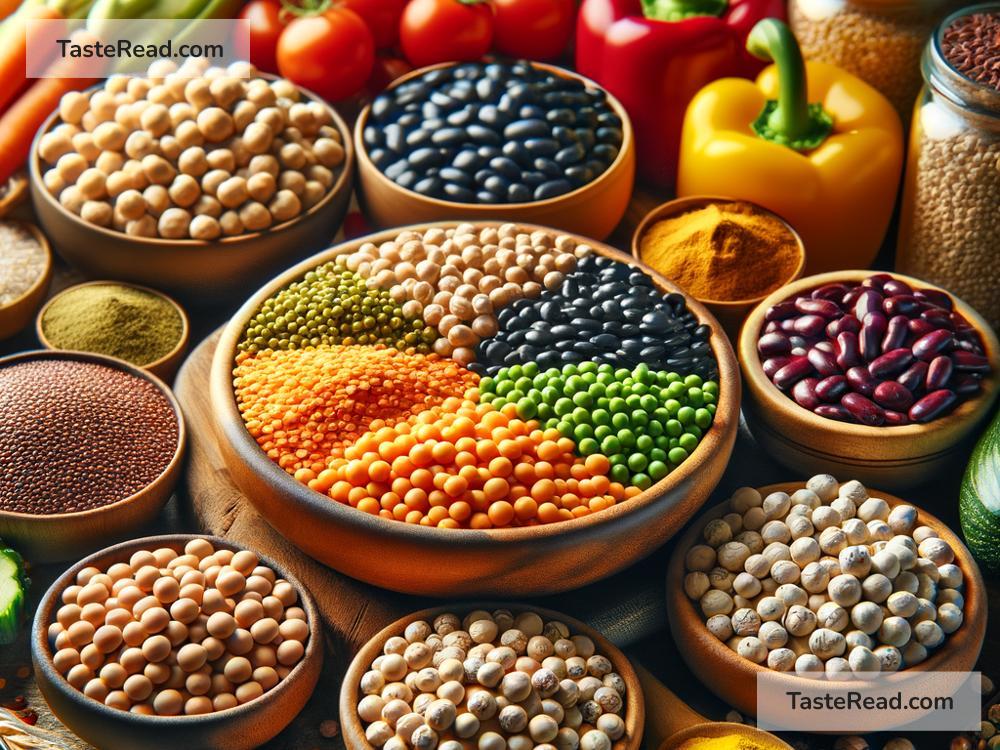Exploring the Nutritional Benefits of Legumes
Legumes are small, nutrient-packed foods that deserve a spot on everyone’s plate. From lentils to chickpeas, black beans to peas, legumes come in many shapes and sizes. These versatile foods have been popular for thousands of years and are enjoyed in cuisines around the world. But what makes legumes so special? In this blog, we’ll dive into the nutritional benefits of legumes and why you should add more of them to your meals.
What Are Legumes?
Before we get into the benefits, let’s understand what legumes are. Legumes are plants that produce seeds or pods. Some of the most common types include:
- Beans: Black beans, kidney beans, pinto beans, and more.
- Lentils: Red, green, and brown varieties.
- Peas: Green peas, split peas, and chickpeas (also called garbanzo beans).
- Soybeans: Used to make tofu, soy milk, and edamame.
- Peanuts: Yes, peanuts are legumes, not nuts!
Legumes are easy to find, affordable, and can be used in a variety of dishes, from soups to salads, dips, and even desserts.
Why Are Legumes Good for You?
Legumes are a powerhouse of nutrition. They provide several essential nutrients that help your body stay healthy. Here are some key reasons why legumes are worth adding to your diet:
1. Rich in Protein
Legumes are one of the best plant-based sources of protein. Protein is essential because it helps build and repair your body’s tissues, muscles, and cells. If you’re vegan or vegetarian, legumes are a great way to get adequate protein without eating meat. For example, one cup of cooked lentils has about 18 grams of protein!
2. Packed with Fiber
Fiber is an important nutrient for your digestive health. It keeps your gut running smoothly and prevents constipation. Legumes are loaded with fiber, which also helps you feel full for longer, so you’re less likely to overeat. Eating more fiber may lower cholesterol levels and help prevent heart disease.
3. A Source of Slow-Releasing Energy
Legumes are rich in complex carbohydrates, which fuel your body and brain. Unlike sugary foods that give you a quick energy spike and crash, legumes provide slow-releasing energy. This helps keep your blood sugar steady and reduces hunger cravings. That’s why legumes are great for people with diabetes or anyone looking to maintain steady energy throughout the day.
4. Low in Fat but High in Good Nutrients
Legumes are naturally low in fat and calories, making them a great choice if you’re watching your weight. They are also packed with key vitamins and minerals, like iron, magnesium, potassium, and B vitamins. Iron helps transport oxygen in your blood, while magnesium supports your muscles and nerves.
5. Good for Heart Health
Legumes are known to be heart-friendly foods. They contain plant compounds like phytochemicals, which may lower inflammation and reduce the risk of heart disease. Plus, eating legumes regularly can help lower “bad” LDL cholesterol levels, thanks to their high fiber content.
Benefits for the Environment
Not only are legumes healthy for your body, but they’re also good for the planet. Growing legumes requires less water and energy compared to animal-based foods like meat and dairy. Plus, legumes can improve soil health by naturally adding nitrogen—a key nutrient—back into the earth.
Choosing more legumes in your diet is an eco-friendly choice that helps reduce your carbon footprint.
How to Add Legumes to Your Meals
Legumes are incredibly versatile and easy to cook. Here are some ideas to include them in your daily meals:
- Soups and Stews: Add lentils, chickpeas, or black beans to hearty soups or stews for an extra boost of protein and texture.
- Salads: Sprinkle cooked beans or peas on top of salads to make them more filling.
- Dips and Spreads: Blend chickpeas with olive oil and garlic to make hummus, or try black bean dip for a tasty snack.
- Rice and Grain Bowls: Add lentils or edamame to rice or quinoa bowls for balanced meals.
- Veggie Burgers: Use legumes like black beans or chickpeas as a base for homemade veggie burgers.
- Snacks: Roast chickpeas for a crunchy, nutritious snack.
If you’re short on time, canned legumes are a convenient option—just rinse them under cold water to reduce added salt.
Conclusion
Legumes are truly a superfood. They are nutritious, affordable, and kind to the planet. Whether you’re looking to eat healthier, lose weight, or simply add variety to your meals, legumes can help you reach your goals. With their high protein, fiber, and vitamin content, these small seeds pack a big punch when it comes to health benefits.
Next time you’re at the grocery store, consider grabbing a bag of lentils, beans, or chickpeas. Experiment with them in your cooking, and enjoy the delicious flavors and nutritional benefits that legumes bring to your table. Your body—and the planet—will thank you!


